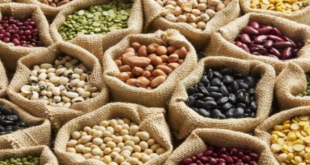When producing olive oil, only 15 per cent of the olives are used. But according to PhenOlives, an Israeli start-up, it is possible to utilise the remaining 85% with the right technology…

Olive oil is a huge sector, with more than three million metric tonnes produced each year. Yet the sector is extremely wasteful. Only 15 per cent of the fruit is used to produce olive oil. The remaining semi-solid waste, known as pomace, oxidises rapidly, becomes toxic and is often discarded.

A group of researchers in Israel is working to achieve a different result by transforming this waste. The start-up PhenOlives, which has patented an advanced technology that prevents oxidation, turns this olive oil waste into flour for the food industry.
Len Pader, PhenOlives’ vice president of business development, said, “We are the first company to develop a solution to stop the oxidation of olive oil waste. This is a revolution for the olive oil industry.”

“Olives being milled for oil extraction. The part of this raw material that remains after the oil has been extracted is called pomace.“
The problem with olive waste…
“It’s a natural process,” CEO Chen Lev-Ari said in a statement. The start-up extracts the pulp from the olive mill, runs it through its proprietary machinery and separates the by-product into different components: pulp, black water and seeds.

Lev-Avri explained that the pulp is dried and milled into a gluten-free flour, antioxidants can be extracted from the black water and the seeds have the potential to be utilised by other industries outside of food and beverage…
 THE GLOBAL WINDOW OF TURKISH FOOD AND AGRICULTURE The Global Window of Turkish Food and Agriculture Sector
THE GLOBAL WINDOW OF TURKISH FOOD AND AGRICULTURE The Global Window of Turkish Food and Agriculture Sector









